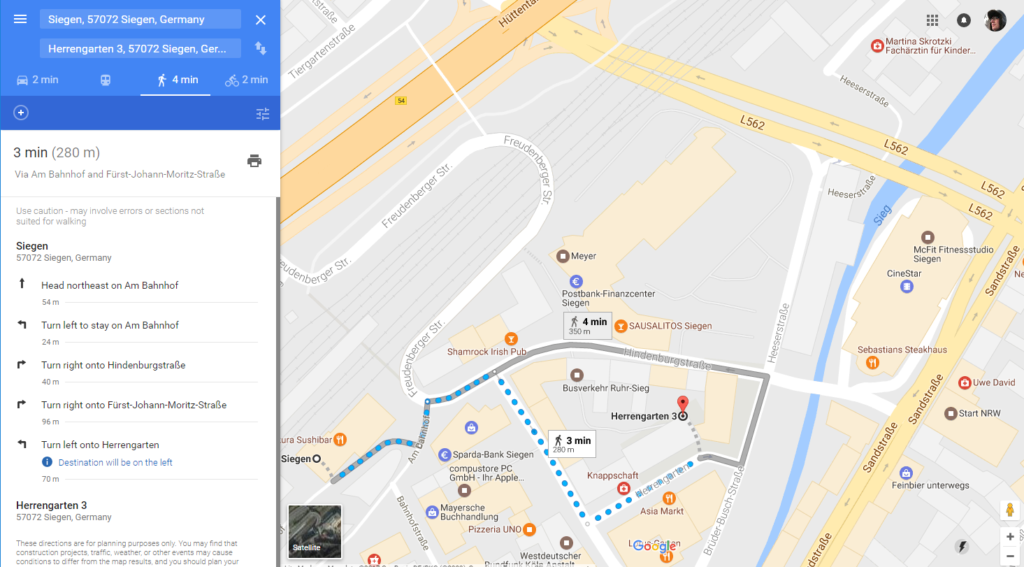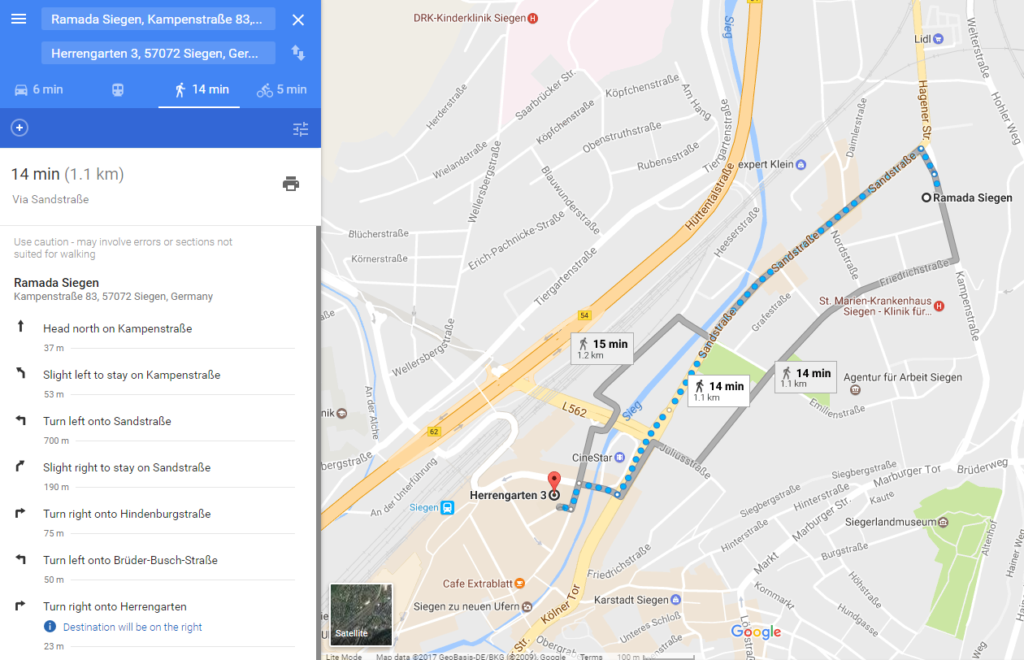Title: Exploring the Early Digital
Venue: Siegen University, Germany
Dates: January 12-14, 2017
Organizers: Thomas Haigh & Sebastian Gießmann
Following the successful June 2016 workshop “Beyond ENIAC: Early Digital Platforms & Practices” the iSchool of Siegen University is holding a followup event to lay the groundwork for a book with the provisional title Exploring the Early Digital. The book, intended as a reader suitable for classroom use and as an introduction to research in the field, will be a mixture of accessible new work by leading scholars and reprints/excerpts from existing works.
Most of the workshop will therefore be spent reviewing and discussing drafts/position papers circulated in advance by invited contributors to the book. There will also be two public lectures by scholars visiting from the United States, a panel discussion featuring the authors of the most influential overview histories of computing, and sessions spent planning out the content and structure of the book.
The workshop is open to all interested participants. To gain access to the precirculated documents, email thomas.haigh@gmail.com.
Confirmed Participants
| Gerard Alberts | University of Amsterdam |
| William Aspray | University of Colorado |
| Maarten Bullynck | SPHERE, Paris 8 |
| Martin Campbell-Kelly | University of Warwick |
| Paul Ceruzzi | Smithsonian Institution |
| Edgar Daylight | Independent Scholar |
| Liesbeth De Mol | CNRS/STL, Université de Lille |
| Sebastian Gießmann | Siegen University |
| Thomas Haigh | Siegen University & University of Wisconsin–Milwaukee |
| Ron Kline | Cornell University (via Skype) |
| Pierre Mounier Kuhn | CNRS & Paris-Sorbonne |
| David Link | Artist |
| David Nofre | Independent Scholar |
| Mark Priestley | Independent Scholar |
| Doron Swade | Royal Holloway University of London |
| Ksenia Tatarchenko | Geneva University |
| Erhard Schüttpelz | Siegen University |
| Tristan Thielmann | Siegen University |
Location: All events will be held in Herrengarten 3, 57072 Siegen. This is in the city center, very close to the main train station and restaurants, rather than in the main university campus. Unless noted otherwise, all events take place in room 210/11. Scroll to the bottom of this page for maps and logistics.
Format: The authors of drafts will have up to ten minutes to introduce their material. This introduction should give context, flag challenges, and identify areas in which input would be particularly useful. Authors should not try to present their drafts as talks. All participants should have read the drafts prior to the meeting, but one or two are identified as “lead discussants” for each draft. The lead discussants should read with particular care, identify questions for the authors, and be prepared to step in if discussion seems to be fading or moving in an unproductive direction. Lead discussants may speak for up to five minutes each immediately after the initial statements by the author of the draft. Lead discussants should make notes during the session with suggestions and comments based on the discussion and forward these to Thomas Haigh for distribution to the author(s) of the draft.
Thursday, January 12, 2016
- 12:00-13:40. Lunch for participants who arrive in time. We can gather in the Bäckerei Hesse for casual refreshments and conversation — this is in the shopping areas just across the river from the venue (map).
- 14:00-14:15. Welcoming remarks from Erhard Schüttpelz in room 210/11.
- 14:15-15:30. Discussion of draft introduction by Thomas Haigh, “Exploring the Early Digital” which raises questions to be explored in the book and articulates the “early digital” concept. Lead discussant: TBA.
- 15:30-16:00. Coffee break.
- 16:00-17:30. Panel discussion: “Structuring Narratives of the Early Digital.” Panelists: William Aspray, Martin Campbell-Kelly, Paul Ceruzzi. Moderators: Sebastian Gießmann & Thomas Haigh.
- 17:30-18:00. Coffee break.
- 18:00-19:30. Public Lecture by Paul Ceruzzi, “’Much to Everyone’s Surprise’: Military and Civil Uses of the Global Positioning System.” Introduced by Tristan Thielmann. Held in room 218.
- 19:45-21:30. Dinner for invited participants at Früh bis Spät, Fürst-Johann-Moritz-Straße 3 (www.frueh-bis-spaet-siegen.de/).
Friday, January 13, 2016
- 9:00-9:45. Initial discussion of book structure, objectives, and content.
- 10:00-11:15. Public Lecture by William Aspray, “Food and the Internet: The Dark Side.” Introduced by Sebastian Gießmann. Held in room 218.
- 11:15-11:30. Coffee break.
- 11:30-12:30. Discussion of draft by Liesbeth de Mol, “The White Man’s Burden of Finite Combinatory Processes: Material and Notational Practices” (with Lead Discussants Edgar Daylight and Ksenia Tatarchenko).
- 12:30-14:00. Lunch at My First Kitchen, Hindenburgstr. 5 – 7 (www.myfirst.kitchen).
- 14:00-16:00. Discussion of drafts by
- Ronald Kline, “Inventing an Analog Past and a Digital Future” (with Lead Discussants Liesbeth de Mol & Paul Ceruzzi, Kline will be present via Skype) &
- Mark Priestley and Thomas Haigh, “Media of Programming” (with Lead Discussants Martin Campbell-Kelly & David Nofre)
- 16:00-16:30. Coffee break.
- 16:30-18:45. Discussion by drafts by
- Doron Swade, “Digital-analog Themes in Pre-electronic Computational Machines: Betting, Gaming, and Mechanical computation” (with Lead Discussants Mark Priestley and Maarten Bullynck) &
- Paul Ceruzzi “Calvin Mooers, Zatocoding, and Early Research on Information Retrieval” (with Lead Discussants Gerard Alberts and William Aspray) &
- Martin Campbell-Kelly (outline only, brief discussion) “The Evolution of Programming Practice on the EDSAC” (with Lead Discussant Pierre Mounier-Kuhn)
- 19:30-21:15. Dinner for invited participants at Münzwerk, Morleystr. 4 (restaurant-muenzwerk.de/)
Saturday, January 14, 2016
-
- 9:00-11:45. Discussion of drafts by
- Ksenia Tatarchenko, “‘The Man With a Micro-calculator”: Digital Modernity and Late Soviet Calculating Practices” (with Lead Discussants Gerard Alberts and Pierre Mounier-Kuhn) &
- Maarten Bullynck, “The Engineer’s Peculiar sort of Frustration” with
Shannon’s Boolean Algebra: Tensions between Theory and Practice in
Designing Switching Circuits During the 1940s” (with Lead Discussants Doron Swade and Mark Priestley) - William Aspray and Christopher Loughnane, “The Business, Labor, and Political Context of Early Digital Computing in the United States: 1945 to 1960” (with Lead Discussants Thomas Haigh & David Nofre)
- 11:45-12:15. Coffee break
- 12:15-1:30. Wrap up discussion of book project. Includes
- nomination and selection of works to seek to reprint
- identification of candidate publisher
- process for internal review of completed draft chapters
- setting deadlines for steps in the editorial process
- 9:00-11:45. Discussion of drafts by
Logistics. This map shows the pedestrian route to Herrengarten 3 from Siegen train station, a very short walk though the central shopping area. The driving route from the city center motorway exit is also visible.
There are several shopping complexes with large parking garages very close to the venue. The Parkhaus Reichwalds Ecke has been recommended to me as the most convenient place to park (map link).
Getting to the venue from the Ramada hotel is a slightly longer walk – just over 1 kilometer straight down Sandstrasse to the city center.
Sponsors: This workshop is supported by
- the Siegen University iSchool and
- the SFB “Media of Cooperation” initiative, as part of project A01: Digitally networked media between specialization and universalization.


